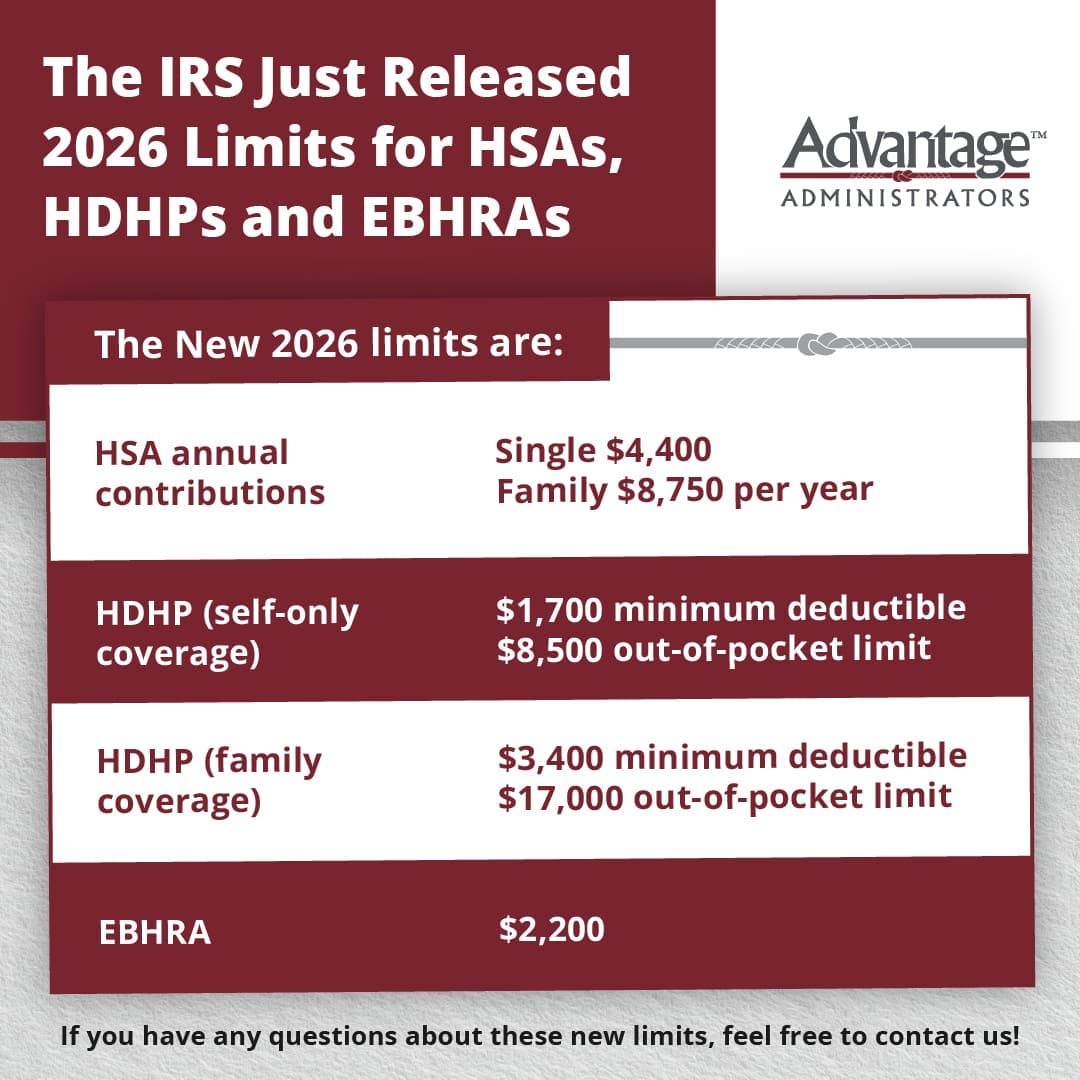Your HSA and Your Taxes
Although it’s still only February, Tax Day—April 15—is only a few weeks away. In addition to focusing on getting your taxes filed, if you have a health savings account (HSA), there are important steps you should follow to appropriately report that information on your taxes.
Just in time for the tax season, Advantage Administrators is here with tips and insight into filing taxes with a HSA.
*Please note that this information is intended for informational purposes only and should not be relied upon as tax advice for a specific situation. For personal tax advice, please contact a licensed tax professional in your jurisdiction.
Filing your taxes with a HSA doesn’t have to be difficult—keep reading to find out how!
Your HSA and Your Taxes
The Necessary Documents. When filing your taxes, two types of documents are important: the information identifying your underlying financial information and the final tax form(s) you submit to the taxing authorities. We’ll talk about both here:
- Ensuring Your HSA Contributions and Distributions are Correctly Listed. The W-2 issued to you by your employer will only list the contributions made to your HSA by you and your employer through your workplace. To account for contributions that you made outside of work, as well as all other contributions, you should refer to IRS Form 5498-SA. Conversely, all distributions from your HSA will appear on Form 1099-SA that you are issued.
- Reporting Contributions and Distributions on Your Taxes. Starting with IRS Form 8889, HSA participants who are filing taxes will report all contributions to, and distributions from, their accounts that have occurred over the preceding tax year. To do so, filers should reference their Form 5498-SA for the contributions flowing into their accounts and Form 1099-SA for the funds distributed from their HSAs during this time. This information can also potentially be used elsewhere in preparing your taxes, for deductions as well as qualifying medical expenses (where applicable). When finalized, the 8889 should be attached to the filer’s Form 1040.
Other Considerations. The coming of tax time is also a reminder to maximize your time for making contributions to your HSA. Those who haven’t filed their prior year’s taxes yet are able to contribute to their HSAs up until Tax Day. It’s best to try to complete your contributions before then, however, in order to ensure that all changes are reflected in your account in advance of when you try to file your taxes.
Tax time comes with enough stresses—but factoring your HSA into your filings doesn’t have to be one of them! We invite you to use this blog as a primer when working with your tax professional to file your taxes, and for those participants of plans administered by Advantage Administrators, we’re glad to answer questions you may have about HSA documentation for your taxes. For assistance, please contact us at any time, or for more information about your HSA, visit our website.










 Flex Plans
Flex Plans Forms
Forms HSA
HSA HRA
HRA Retirement
Retirement Health Shopper
Health Shopper FSA Store
FSA Store